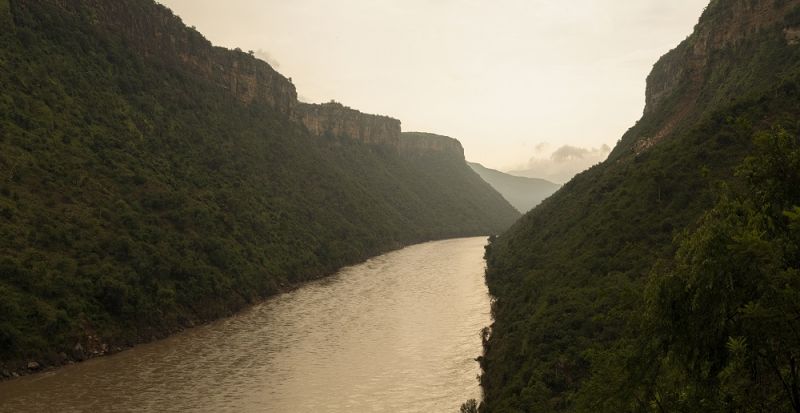
Egypt and Ethiopia are inching, slowly but surely, toward conflict.
Negotiations over the construction and operation of the Grand Ethiopian Renaissance Dam on the Nile — which Egypt fears will cause droughts in the country downstream — have collapsed. On Tuesday, the Egyptian president warned that “no one can take a single drop of water from Egypt, and whoever wants to try it, let him try”. The following day, the Egyptian military revealed joint air force training with Sudan, which it is calling the “Nile Eagles”. (Sudan also depends heavily on Nile water from Ethiopia). Meanwhile, the Ethiopian government is moving forward with plans to fill the reservoir of the dam, which it wants to complete by 2023.
It is clear that six years of sterile negotiations and unilateral measures have destroyed the goodwill that the leaders of the two countries displayed when they signed a declaration of principles on the controversial dam in March 2015.
Egypt and Sudan recently called for an external mediation, which Ethiopia promptly rejected. But a long-term solution must be negotiated.
The Blue Nile provides 85 percent of the water flowing in Egypt’s Nile. With virtually no rainfall, Egyptians have relied for centuries on the river for all their water needs. Egypt views any reduction in its existing share as an existential threat. Ethiopia, for its part, views the Nile as an untapped national resource that could dramatically improve the standard of living of its population (it currently ranks 173 in the United Nations human development index). The dam has become a symbol of Ethiopia’s sovereign right to development and a source of national pride.
To complicate things further, both countries share a history of distrust. On one side, there’s the failed and arrogant Egyptian foreign policy in East Africa — Anwar Sadat’s hostility to its communist regime in the 1970s and Hosni Mubarak’s alienation of sub-Saharan Africans. And on the other side, there’s Ethiopia’s insistence on treating the Nile as a national — not a shared — natural resource. That has long made Egyptian leaders more than nervous.
There is little point in apportioning blame in the current diplomatic failure; it doesn’t move the parties closer to an agreement. There is equally little point in engaging in legal debates about rights and obligations related to trans-boundary waterways. Both countries have stretched their interpretation of international law without getting anywhere. Ultimately, Egypt and Ethiopia rely more on the laws of power than the power of laws.
The challenge, therefore, is to take the two countries by the hand toward an agreement that respects their most cherished goals. Ideally, international rivers are best managed by transnational bodies that reconcile the interests of states and treat the river as an integrated ecosystem. But it is unlikely the countries will agree to that system.
A muscular diplomatic approach is needed. Both countries have extensive relations with the United States and China. While they too mistrust each other, they still need to reduce the scope of their rivalry and find zones of convergence.
The United States and China can turn the Nile crisis into an experiment in collaborative leadership. And they won’t start from scratch: Egypt and Ethiopia already agreed to a declaration of principles that gives each of them the one thing they need most. They also have an institutional foundation to build on: the Nile Basin Initiative that has most of the riverain countries.
An American-Chinese shared understanding of the way forward, developed in consultation with the parties, as well as the other international partners, including Russia, France, Germany, Britain and the African Union, has a much higher chance of implementation than the ongoing charade of negotiation. A formal endorsement of the U.N. Security Council would also enhance its viability further.
The current climate of mistrust and provocative rhetoric will drive Egypt and Ethiopia to a conflict with devastating consequences for them, Sudan and East Africa as a whole. It is the last thing this region can afford and the last thing the international community needs.
Ezzedine C. Fishere was The Post's second Jamal Khashoggi fellow. He is the author of “The Egyptian Assassin” and a senior lecturer at Dartmouth College.
